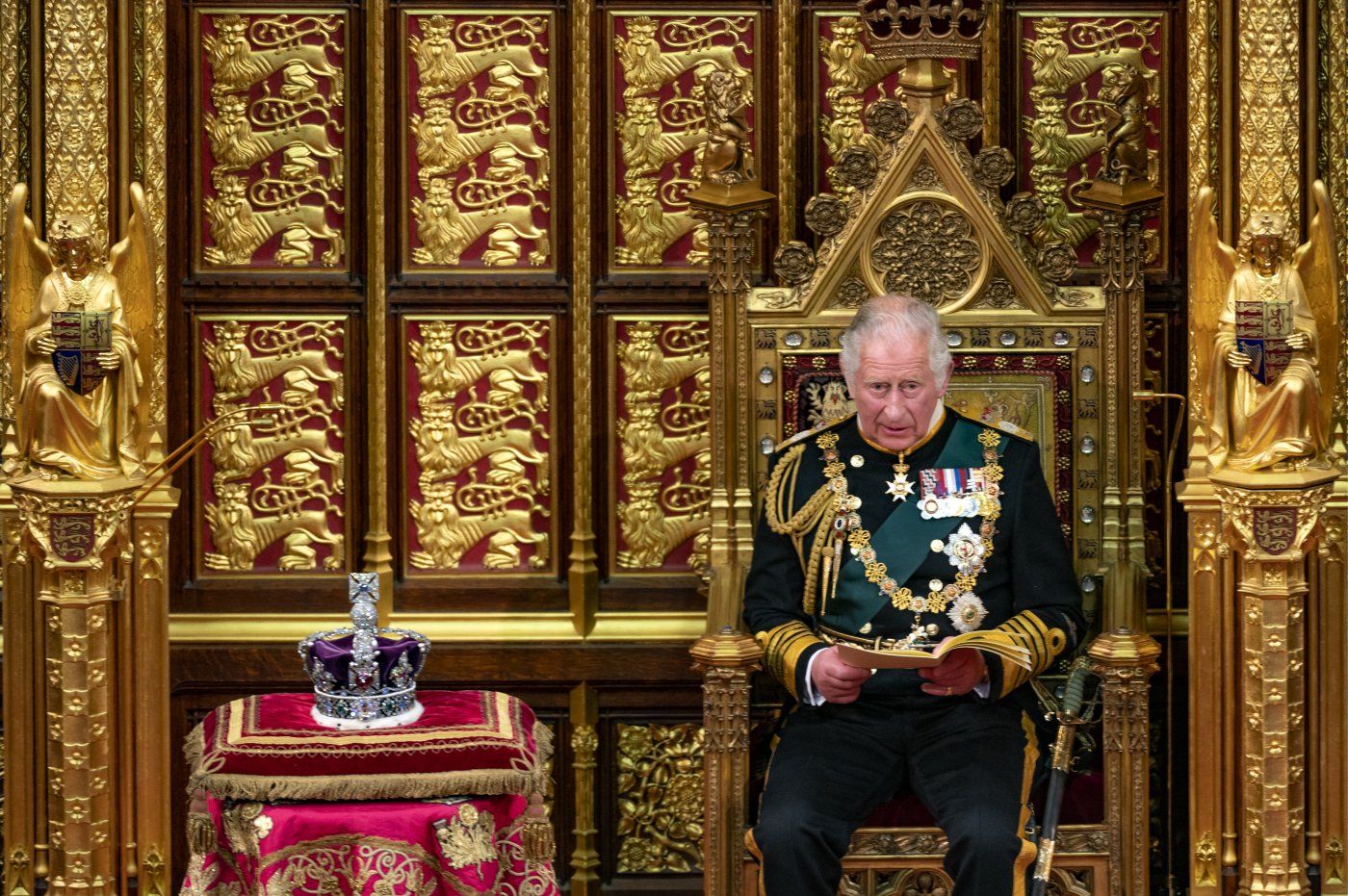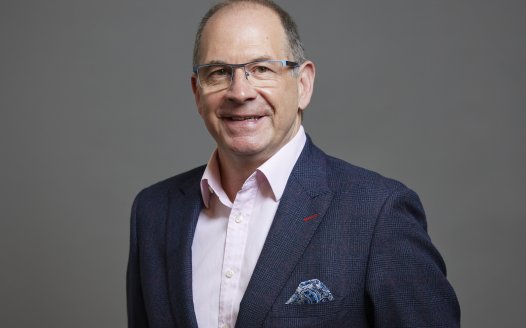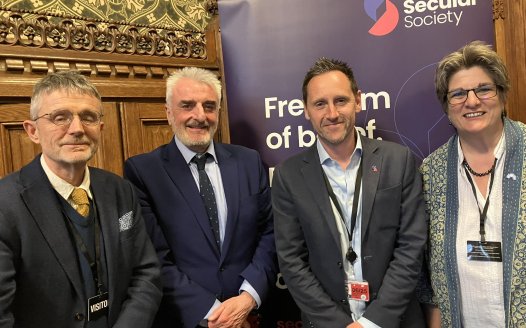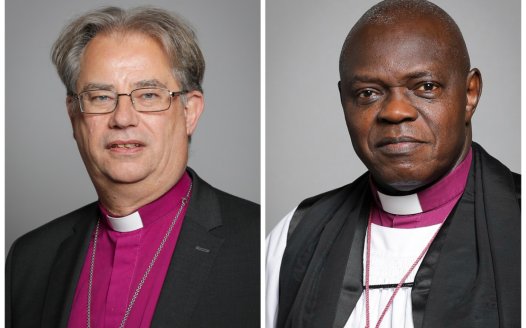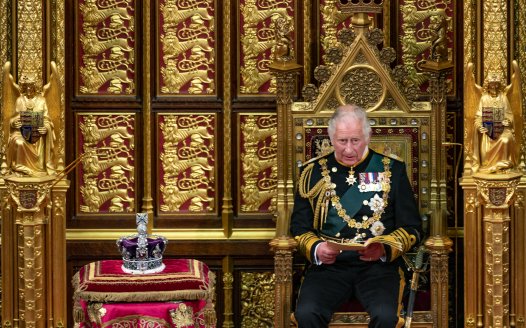A coronation fit for a king, not a modern democracy
Posted: Thu, 27th Apr 2023 by Stephen Evans
An exclusively Anglican religious ritual is no way to inaugurate a head of state in diverse Britain, argues Stephen Evans.
Whether in a republic, or in a constitutional monarchy like the UK, the investiture of a head plays an important role. It forms and reflects a nation's identity and can provide for a rare 'unifying moment' for all its citizens.
It is therefore regrettable that the crowning of King Charles will happen as part of an exclusively Anglican religious ritual.
It's long been thought that the upcoming coronation will be a more multifaith affair than the previous one. But this was always going to be a tall order. King Charles might have desired a more 'diverse' ceremony, but the Church of England had other ideas.
So, it seems the role of other faiths will be limited to performative subservience – Muslim, Hindu, Sikh and Jewish peers presenting the king with various bits and bobs of coronation regalia.
According to reports, Baroness Merron, a Jewish peer and former Labour MP, will bring the king one of the coronation robes. Lord Patel, a Hindu crossbench peer, will carry the sovereign's ring. Lord Kamall, a Muslim Conservative peer, will bring some bracelets. And Lord Singh, a Sikh crossbench peer, will bring him a glove.
Clerics from other faiths will form part of a "faith procession" but won't be asked to give any readings or blessings.
Such tokenistic gestures are a poor substitute for genuine inclusivity. The plans demean other faiths and – as is so often the case with multifaithism – completely neglect the nonreligious and religiously unconcerned.
This coronation, like all others, is intended to project and entrench Anglican supremacism and privilege. That's the whole point. The rest is window dressing.
The archbishop of Canterbury will be the one to place the solid gold crown on the king's head. Away from the public's gaze, he will anoint our head of state with holy oil, a part of the ceremony echoing the divine right of kings. The king will swear oaths to defend the Church of England's privileges and doctrine.
The whole affair is positively medieval and deeply anti-secular.
The coronation will not only seem outdated to many, within the context of modern Britain. It will also be inaccessible to many in terms of what it seeks to represent. The archbishop is understood to be giving the king 'religious guidance' on the theological significance of all of this, but many of us are likely to be suitably bemused and alienated.
The Church of England regards the coronation as a "unique missional opportunity". But the danger to monarchy is that the optics of a religious coronation will render it as irrelevant as the CofE is to many Brits. This is especially true of younger people, who regard the Church as out of touch on social issues such as same sex marriage and gay sex which are still regarded as sinful by the CofE. Recent polling found that 78% of those aged 18-24 aren't interested in the royal family. Just 3% of the same cohort describe themselves as Anglican.
Despite being an exclusively Anglican ritual and legally unnecessary, the coronation will be paid for by the UK government using taxpayer money – a situation not supported by more than half of Britons. The National Secular Society's freedom of information request as to the expected cost was met with a refusal to disclose by the UK government, but estimates suggest it will run to many tens of millions of pounds. Against the backdrop of the Church and the monarch's substantial wealth, Graham Smith of Republic has described the state funding of the coronation as a "slap in the face" for people struggling with the cost-of-living crisis.
Regardless of whether individuals support the idea of monarchy or not, a head of state's official accession should be inclusive and representative of the heterogeneous state they will be heading. A wholly Anglican coronation service is no longer capable of reflecting or responding to modern British society.
Many will no doubt be seduced by the spectacle of the coronation. The status quo and tradition will be defended by those who subscribe to British exceptionalism and quite like the idea of the UK still being a Christian country, including some minority faith leaders who benefit from the leg up that Anglican establishment can provide.
But King Charles is no champion of religious freedom. A genuine commitment to this important principle is inconsistent with the role of head of state being reserved exclusively for practising Christians. The monarch's religious titles of 'defender of the faith' and 'supreme governor of the Church of England' are underpinned by an assumption that all future monarchs will be believing Anglicans. This is statistically unlikely and runs counter to the concept of freedom of religion or belief.
The coronation exists to assert the Church of England's supremacy over the constitution, the monarchy, the state and its citizens. It's the ultimate privilege from which all other religious privileges flow.
A global audience will tune in to watch a ghost of what the UK once was, rather than what it has become. They may well marvel at the pomp and pageantry, but I bet they'd take equality and democracy over inherited power and religious privilege for themselves.
The role of head of state in a 21st century democracy should not operate like this. It betrays everything modern Britain should stand for. This coronation should be the last. And then the work to separate church and state should begin.

